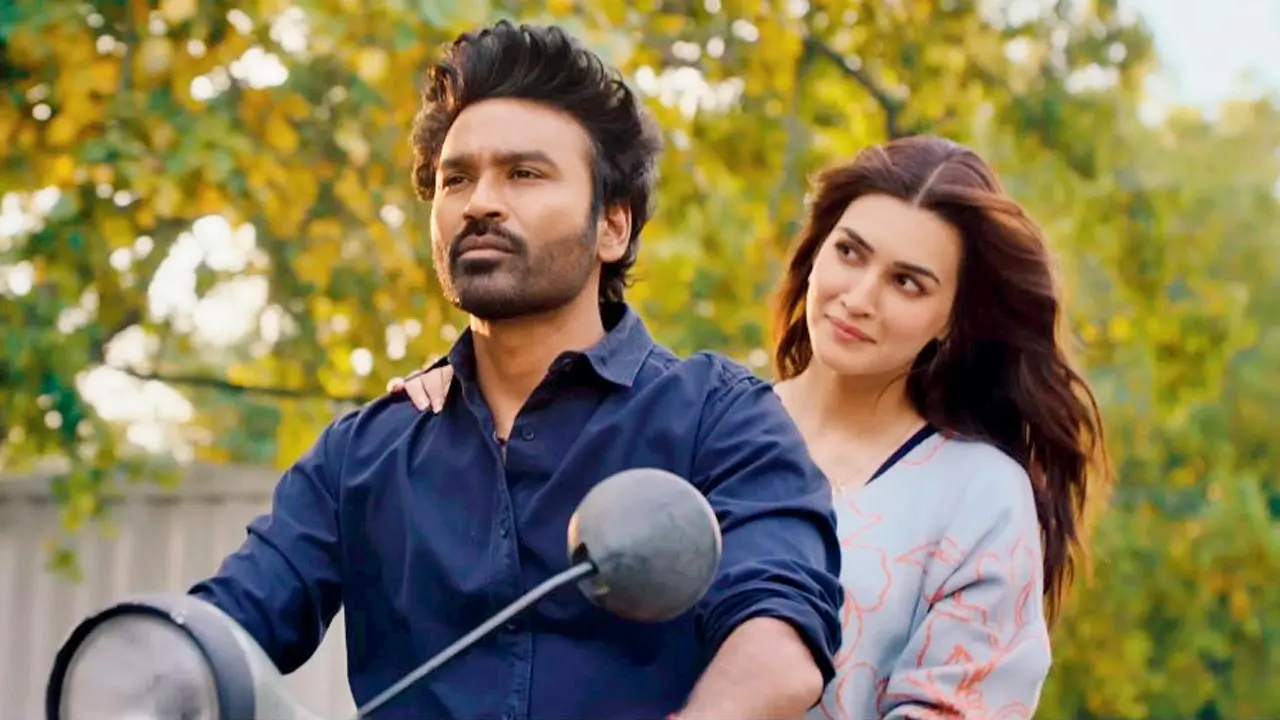With less than a week to go for Tere Ishk Mein’s release, filmmaker Aanand L Rai is surrounded by the familiar chaos of post-production — sleepless nights in mixing rooms, last-minute tweaks in VFX, and the works. As the Dhanush and Kriti Sanon-starrer is nearly ready to meet its audience, the questions begin. The biggest one this time: is Tere Ishk Mein a successor of sorts to Raanjhanaa (2013)?
“Every artiste has at least two spaces — the rom-coms and the intense love stories. [The latter] is the space I return to. This is my third intense love story, if you count Atrangi Re [2021], but for reasons reserved for the film, it’s actually my second. Maybe that’s why people feel Tere Ishk Mein is a spiritual successor to Raanjhanaa,” reflects the director.
Through Dhanush’s Shankar and Sanon’s Mukti, the director presents an unrequited love story that has shades of rage and self-destruction. Will the film offer a contentious take on love, like Raanjhanaa did? But these are different times, Rai notes. “There was a beauty in the year Raanjhanaa released. You and I could disagree, yet sit and talk. Today, the nuance of conversation is dying. There is too much negativity, too much social media. Everything becomes polarising.”
(L-R) Dhanush and Kriti Sanon in ‘Tere Ishk Mein’
Did he second-guess his work because of this? “No,” he says instantly. “I don’t know any other way to make films. I live for debates. I don’t want to divert myself towards being safe or politically correct. My only job is to tell an honest story.”
Rai isn’t worried whether an intense love story like Tere Ishk Mein runs the risk of being labelled toxic. “In my head, Raanjhanaa was never toxic. I was talking about two people whose definitions of love are very different. But every feedback has taught me something. My biggest takeaway is that people walk into the movies and imagine things from [their perspective]. Critics have a different point of view; they are waiting to dislike you, and if you surprise them, they get happy. But the audience comes with love in their heart, to be entertained. They buy a ticket hoping to like you. That difference matters to me.”
For him, the Dhanush and Sanon-starrer serves a simple purpose. He shares, “I hope to make people think about love all over again. I hope we agree, or agree to disagree. I need that conversation. I want a relationship between the maker and the audience where something is being discussed.”
If the relationship between the maker and his audience is valuable, so is that between a director and his film. The latter was tested earlier this year when the producers of Raanjhanaa re-released the film with an AI-generated alternative ending. The move drew ire not only from Rai, but also from many filmmakers who felt it set a dangerous precedent. Months on, as he looks back at it, Rai says, “What I realised is that the film doesn’t belong to me anymore. It belongs to the audience; they protested more than I did. Now, my contracts will have clauses. If I’m giving you the film, you cannot modify it. There will be one more clause in the 100-page contract. It’s not about me alone; it’s for future generations. This can damage your creativity if you’re not careful.”
(L-R) Aanand L Rai with Dhanush
‘Tere Ishk Mein’ is Aanand L Rai’s third collaboration with Dhanush after ‘Raanjhanaa’ and ‘Atrangi Re’. He beams, “Dhanush has done just two Hindi films in the last decade, and both with me.” They may have bonded on a creative note initially, but today it runs deeper. Searching for the right analogy, the filmmaker says, “Going to him is like going to my son and saying, ‘This is the story I want to tell.’ He has a perspective on how to make it and not whether he should do it.”

